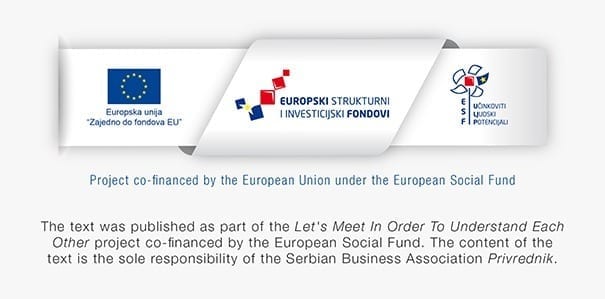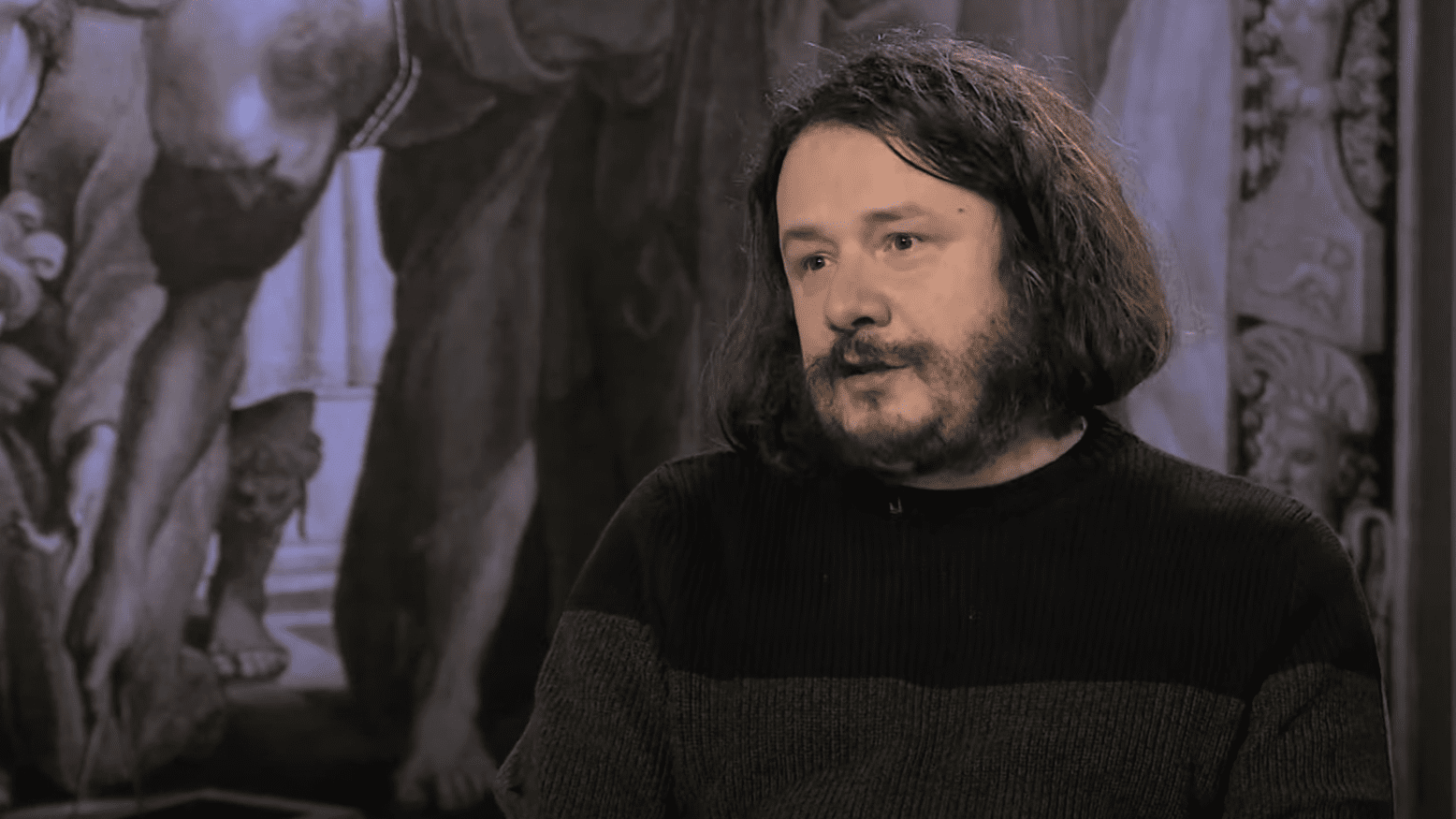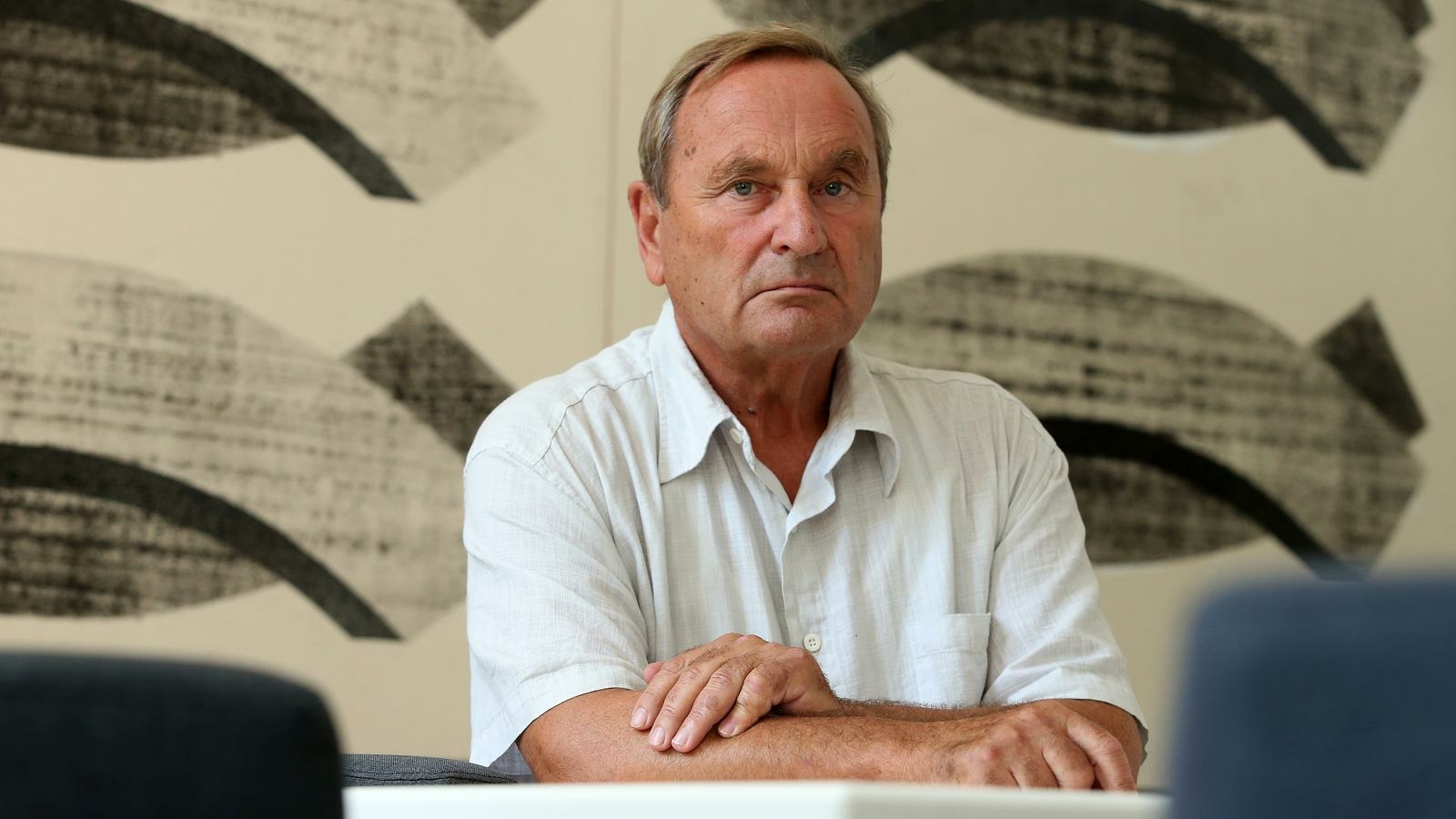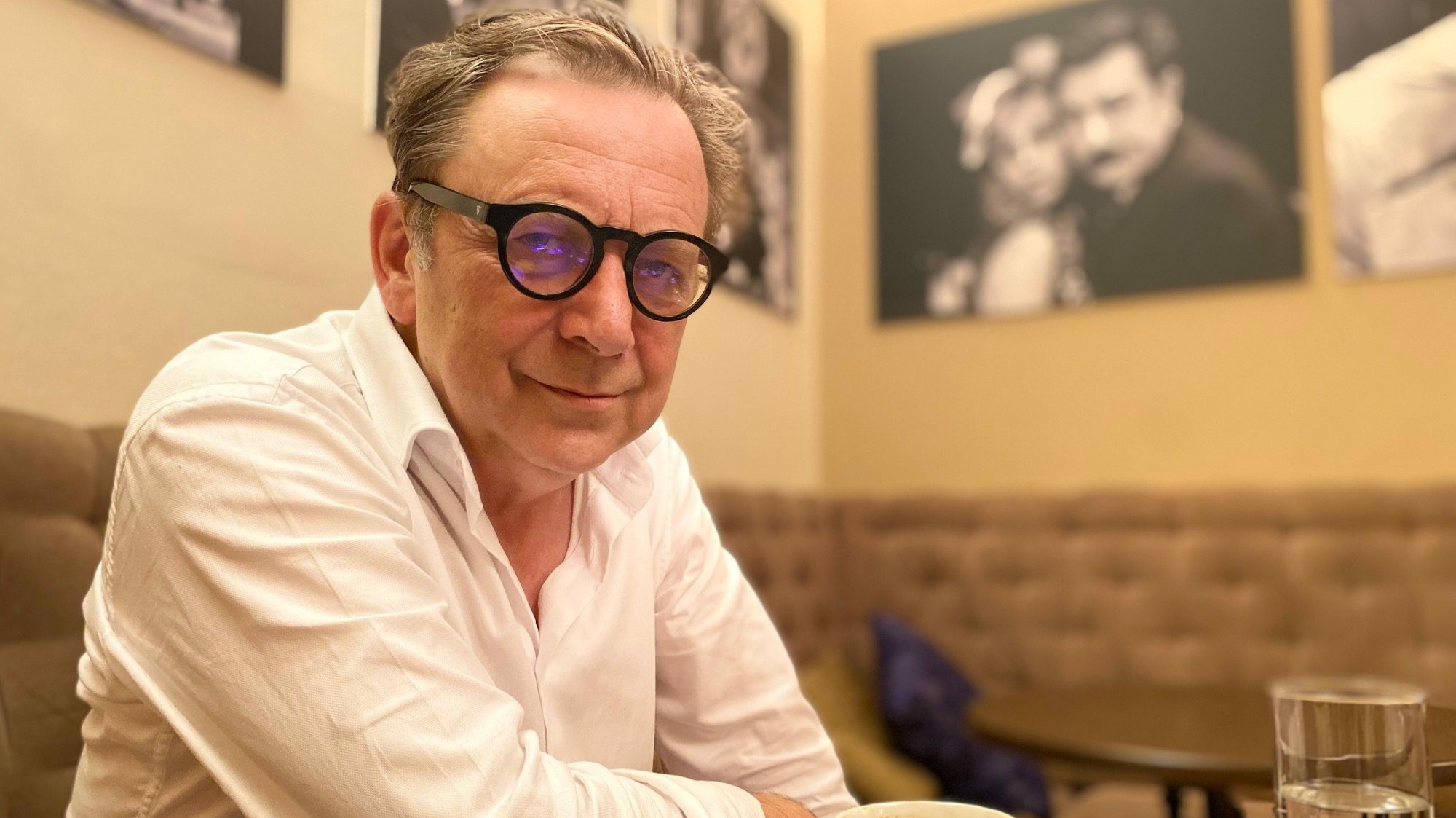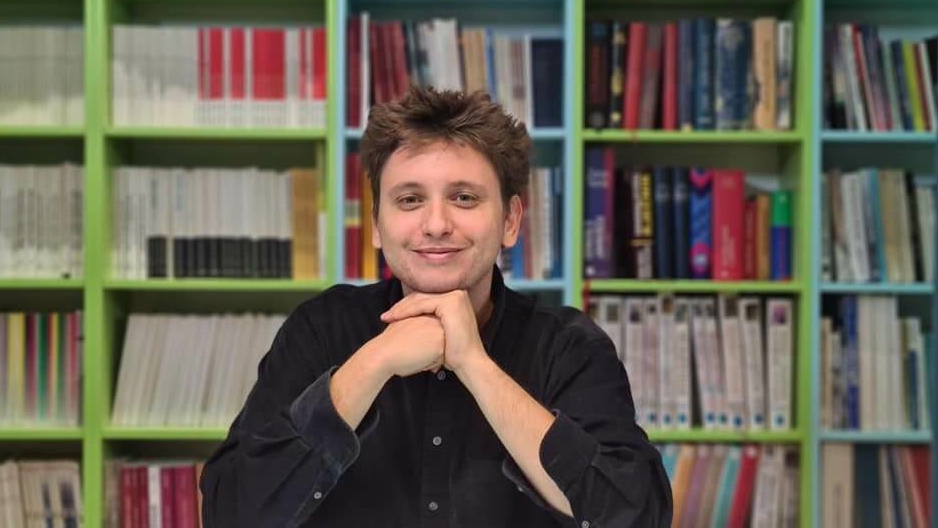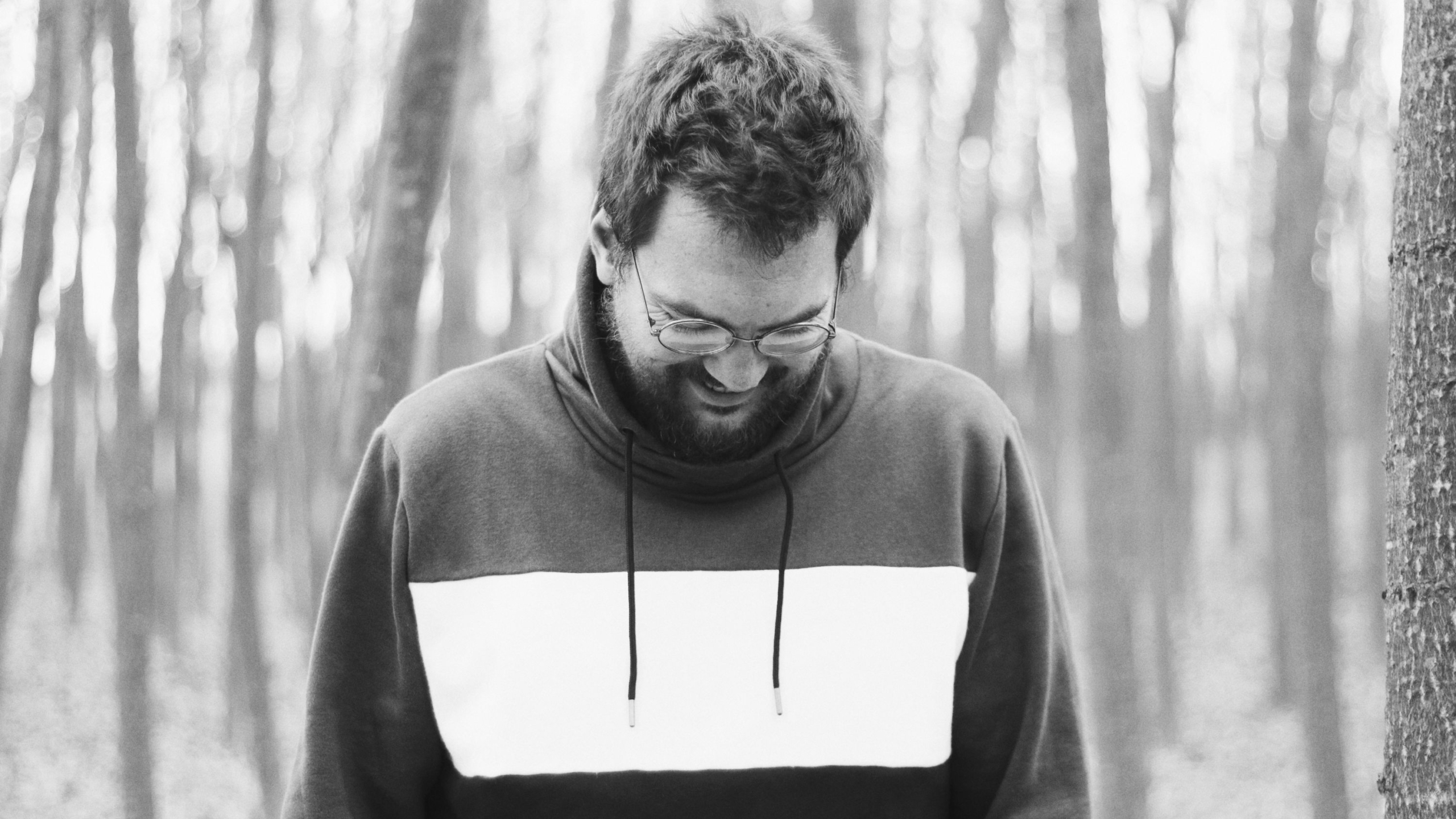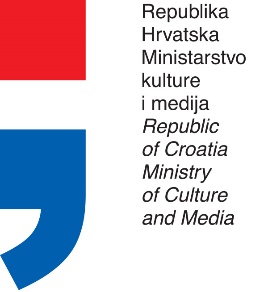Muharem Bazdulj is one of the best-known writers of the younger generation of our language area, equally known as a journalist and columnist. He was born in Travnik, studied in Sarajevo, lives in Belgrade and writes and publishes in numerous magazines and newspapers of the former Yugoslavia. He has been awarded both for his prose fiction and for his journalistic articles. He creates, publishes – but often also critiques – throughout the area we today call “the region”, unconstrained by borders and compromises. He doesn’t hesitate to express unpopular opinions about many social issues. He talks to P-portal about some unique characteristics of this area and himself in it.
You are active throughout the region; you follow current events, and you meet people. To what extent are we strangers to each other?
We are strangers to each other much less than chauvinists on all sides – those who actively or passively caused or wished for the disintegration of Yugoslavia – may wish. For example, from the perspective of someone in Belgrade, even young people born after the breakup of Yugoslavia don’t see Zagreb, Sarajevo or Podgorica as truly foreign cities, as are, for example, Gothenburg or Madrid. They see them as places where, although officially foreign tourists, they share the same language and a large part of their culture with the locals. This doesn’t mean that the interpretations of history, especially recent history, aren’t drastically different, but, luckily, that is rarely an obstacle to at least a basic understanding in everyday life.
You don’t spare anyone in your journalistic texts. Does this often create problems for you?
It depends on what you consider a problem. Quite early on, more than twenty years ago, when I started actively doing journalism, I adopted the words of Jonathan Swift which, to paraphrase, say that if you give yourself the right to speak and opine publicly, you must also be prepared for fierce public criticism, just as the rich must be prepared to pay more taxes. I am, therefore, used to my opinions being challenged and am ready to engage my opponents in discussion when I deem it worthwhile. If you are in journalism just to be patted on the back, you are in the wrong profession. I considered it my duty, for example, to write about the crime in Dobrovoljačka Street in the Sarajevo newspaper Oslobođenje and about the crime in Štrpci in the Belgrade newspaper Politika. If my problems are fools on all sides hating me, that is a small price to pay.
Attachment to Serbs requires justification
Still, you are known as someone attached to the Serbs. What do you have to say in your defense?
An excellently phrased question. If someone is attached to the Croats or Bosniaks, that can pass without comment, but attachment to the Serbs carries with it the need to say something in your defense. I am devoted only to the truth in my public work. Since in the dominant narrative the truth about the violent breakup of Yugoslavia is usually distorted by proclaiming “the Serbian side” the only and absolute culpable party, anyone who tries to bring this narrative at least a little closer to the truth is perceived as someone irrationally attached to the Serbs. As someone who has been living in Serbia for a decade, who has participated in its public life even longer and who belongs to Serbian culture and literature, I am not such an obvious example, as are Peter Handke, Noam Chomsky or the late Harold Pinter. As we move away from the end of the last century, this distorted narrative becomes more and more canonical, and all efforts to counter it are likely doomed to fail. But, as the probably greatest modern writer said, a gentleman always fights for the lost cause.
Can we say that there is hope for a society as long as a writer enjoys such a status and is considered important enough to be banned from entering a city?
Yes, here you are alluding to the decision of the Bihać City Council from about a year ago to declare Peter Handke, Emir Kusturica and me undesirable in that town. I have said several times that that decision is not worth to me the piece of paper it is written on. Bihać is as much my town as it is the town of any of those councilors, a town that is a part of my family’s history and a town whose bright role in history is dishonored by these petty provincial politicians in the current local government. It is the town where AVNOJ (the Anti-Fascist Council for the National Liberation of Yugoslavia) was established, and therefore also the country that, among world-renowned artists, was most faithfully and fervently defended by Handke and Kusturica at the beginning of the 1990s. But petty local politicians have another tradition that is privately more important to them, the tradition that has made the demographic state of Bihać so different from the one at the beginning of the 1940s. Twice they expelled practically all Serbs, and they haven’t exactly brought prosperity to the Bosniaks there either, as seen from their mass emigration to the West. For a long time now, there have been more Iranians and Pakistanis than Serbs and Croats in Bihać. Those who have made Bihać a transit terminal want to ban people who are welcome everywhere from coming?! But, as you correctly said, for a writer, everything is material for literature and a part of their biography. The hatred of such people is a badge of honor for me. But there is something much worse in that whole story. Nobody reacted to this bizarreness, this travesty, in the so-called freedom-loving Sarajevo. One text by Ozren Keba is the proverbial exception that proves the rule. The same public that is outraged by every stupid act by irresponsible individuals in Belgrade, Zagreb, Banja Luka or (western) Mostar and is beset by self-righteous fury over every graffito, every foolish statement and even social media posts is silent when the supporters of the “no Serbs and dogs” approach again issue similar shameful decrees through official legislative bodies. But they themselves will suffer the most, and they already suffer, for such cowardice and opportunism. The parable of pastor Niemöller (“First they came…”) is almost a cliché by now, but it is truly fitting here. They were silent when they came for Bazdulj and Kusturica, and now previously unquestionable national moral and political authorities are being hounded in Sarajevo media.
A Travnik native in Belgrade
Young people are still leaving this region in large numbers, and the Western countries have become synonymous with better standards of living. You are one of the few that went not west but – east. How come?
I did move from Sarajevo to Belgrade, but I didn’t see that as a move to the east, except in the most basic sense. I don’t think you had basic geography in mind either. When someone moves from Zagreb to Stockholm, it is said they moved to the West, although Stockholm is more easterly than Zagreb. What I am trying to say is that for most people, the West is a place with bigger incomes, more security, free elections, freedom of speech, the rule of law and so on. In that sense, Belgrade perhaps isn’t the West compared to Vienna or Paris, but it is the West compared to Sarajevo and Bosnia today. Bosnia and Herzegovina is still a protectorate thirty years after formally gaining independence; ethnic divisions are enormous, and life, in the basic sense, is easier in Belgrade for me. Moreover, for me as a writer and journalist, my livelihood depends on the area where my language is spoken, and there are many more media and publishing houses in Belgrade and therefore a much bigger market for my work. In that sense, the only alternative was maybe Zagreb, but, although I have published some books there that were well-received, visited often and lived there for a few months as a refugee in the early 1990s, I felt that both the mentality and culture of Belgrade suited me much more. To conclude a little jokingly, it is not, after all, the first time that a Travnik native had such an impression.
It seems that Serbs in Croatia in recent decades have become used to being very careful, hypercorrect. Do you think this is the best way to free themselves of the burden of the imposed collective guilt?
I am an outside observer, but I think that is an excellent diagnosis. Yes, carefulness and hypercorrectness have become almost second nature to Serbs in Croatia. Diagnosis is, of course, important, and is necessary before therapy, but the patient must first make it clear that they want the therapy. Some people get used to living with the “illness”, just as some convicts can’t wait to commit a new offence as soon as they are free in order to go back to prison, which they started to see as home. To me as an onlooker, it seems that some Serbs in Croatian public life almost enjoy the position of, as you said, “imposed collective guilt”. This kind of perversion – you know that better than me – goes so far that some nominally Serbian media are often used to spread various bizarre historical interpretations and falsehoods and to hound Serbian spiritual leaders and cultural greats. The burden you mention cannot be removed by anyone but you. And courage is very important here, the courage to reject others’ images of yourselves and to not see Croatia today as a place where Serbs rent their right to live. Until 30 years ago, Croatia was constitutionally the state of both the Serbian and Croatian people, and without the antifascist struggle in the Second World War, in which Serbs were the most numerous, there would be no Socialist Republic of Croatia from which the modern Republic of Croatia arose. Croatia doesn’t belong a fraction more to its Croats than it does to its Serbs. That is the starting point for everything.
Some want to change the world, and some just want to get by in life, your literary hero says. That has always been true, but do you feel it is difficult to tell these two kinds of people apart today? Many pretend to be something they are not.
Yes, this question would be better answered by Sergej Babić, the protagonist and narrator of my novel The Square Root of Life. However, if you ask me, perhaps it is not that important to tell them apart. The one who wants to change the world will certainly try to meddle in your life, and the other one will try to pass unnoticed. Pretending to be something they are not is the biggest problem for those who do it.
What drives you to write?
I once asked myself that more often. It is a bit like starting to smoke or drink daily; you first wonder what it is all for, other than the pleasure. I have enjoyed expressing myself verbally, as they call it, since childhood, so I wrote because it felt good, because I felt that I couldn’t grasp the meaning of an experience or sensation unless I wrote it down. I have become an addict by now, so I just write without asking myself why.
